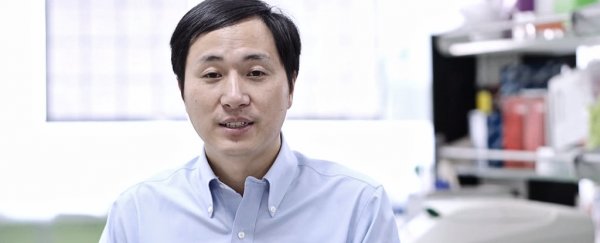After Chinese scientist He Jiankui shocked the scientific community by announcing last month that he had edited the genes of human babies, he mysteriously vanished.
And now he's been found.
The New York Times reports that guards are holding He in a guesthouse at his university, the Southern University of Science and Technology.
It's unclear whether the guards work for the Chinese government, the university, or another organization — but their presence is the latest sign that He's transgressive research upset the delicate balance of the genetics research community and regulatory systems, prompting retaliation from powerful interests.
Plainclothes Guards
The Chinese government condemned He's work after he announced it, launching an investigation and banning him from continuing his research. What was unclear, however, was whether He's disappearance was a result of him laying low or being held somewhere.
Now the Times has found that He is staying at a university guesthouse normally used to house visiting scholars, where a dozen plainclothes guards refused to identify themselves to a Times reporter.
He is able to communicate over email and phone calls, according to the Times, and has corresponded with business colleagues.
"He was extremely irresponsible to the employees, partners and investors," said Liu Chaoyu, with whom He co-founded the gene-testing company Vienomics, in an interview with the Times.
Liu last saw He the day before the conference at which he disclosed the existence of the gene-edited babies. "He did not discuss anything with us before he made his announcement and we had to deal with all of it unexpectedly."
Shock And Awe
The university and Shenzhen police both declined to comment to the Times. In fact, all employees of the university have been barred from speaking to the press, according to a message obtained by the paper.
What's clear is that He's unprecedented work sent shockwaves not just through the research ecosystem but through the powerful machinery of international government — and as the saga of his treatment in the wake of the announcement unfolds, it could be a roadmap to the challenges other researchers would face if they follow in his footsteps.
This article was originally published by Futurism. Read the original article.
